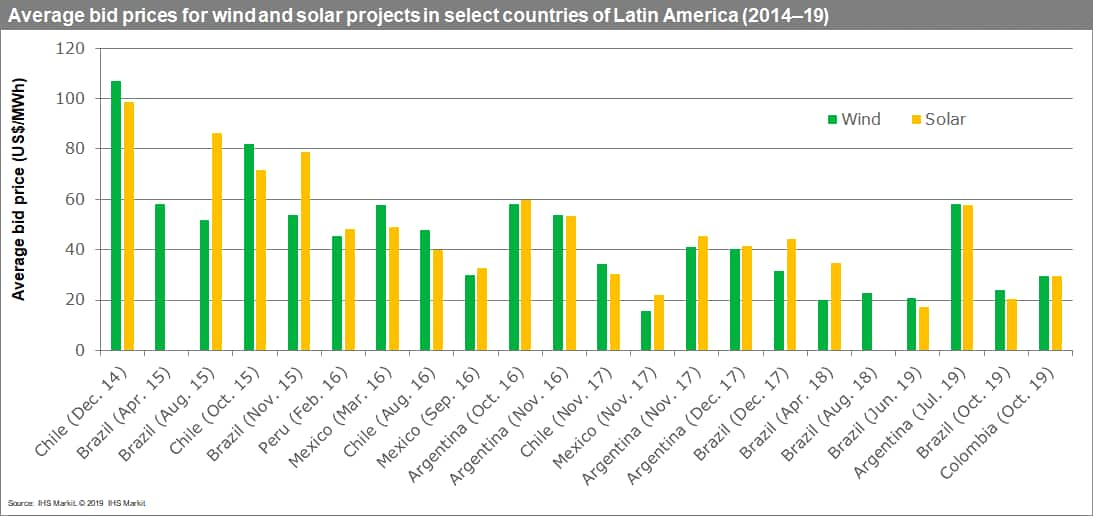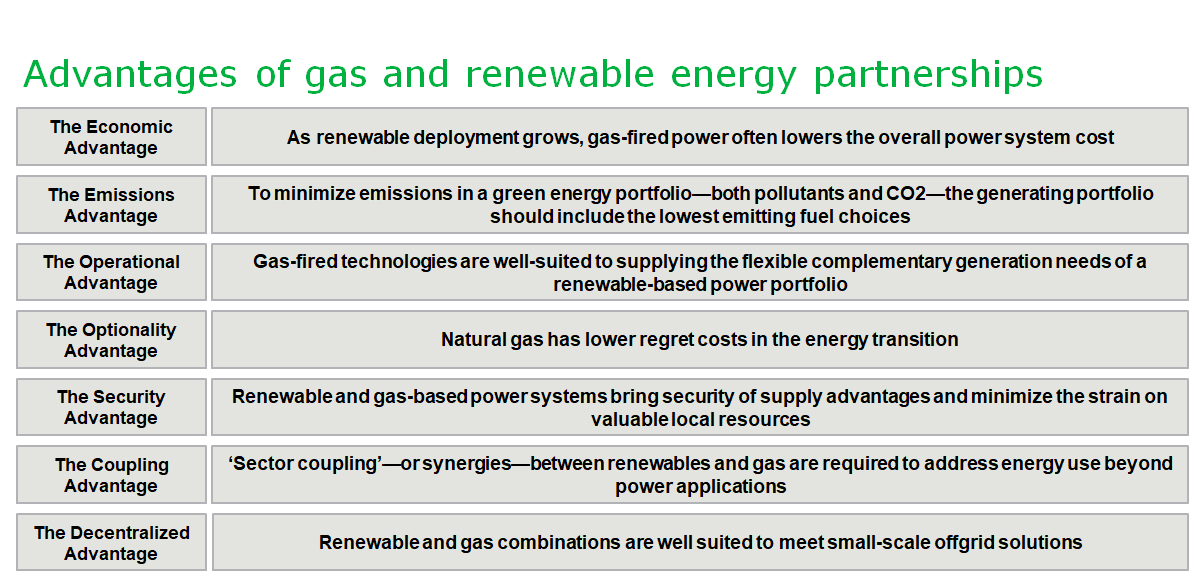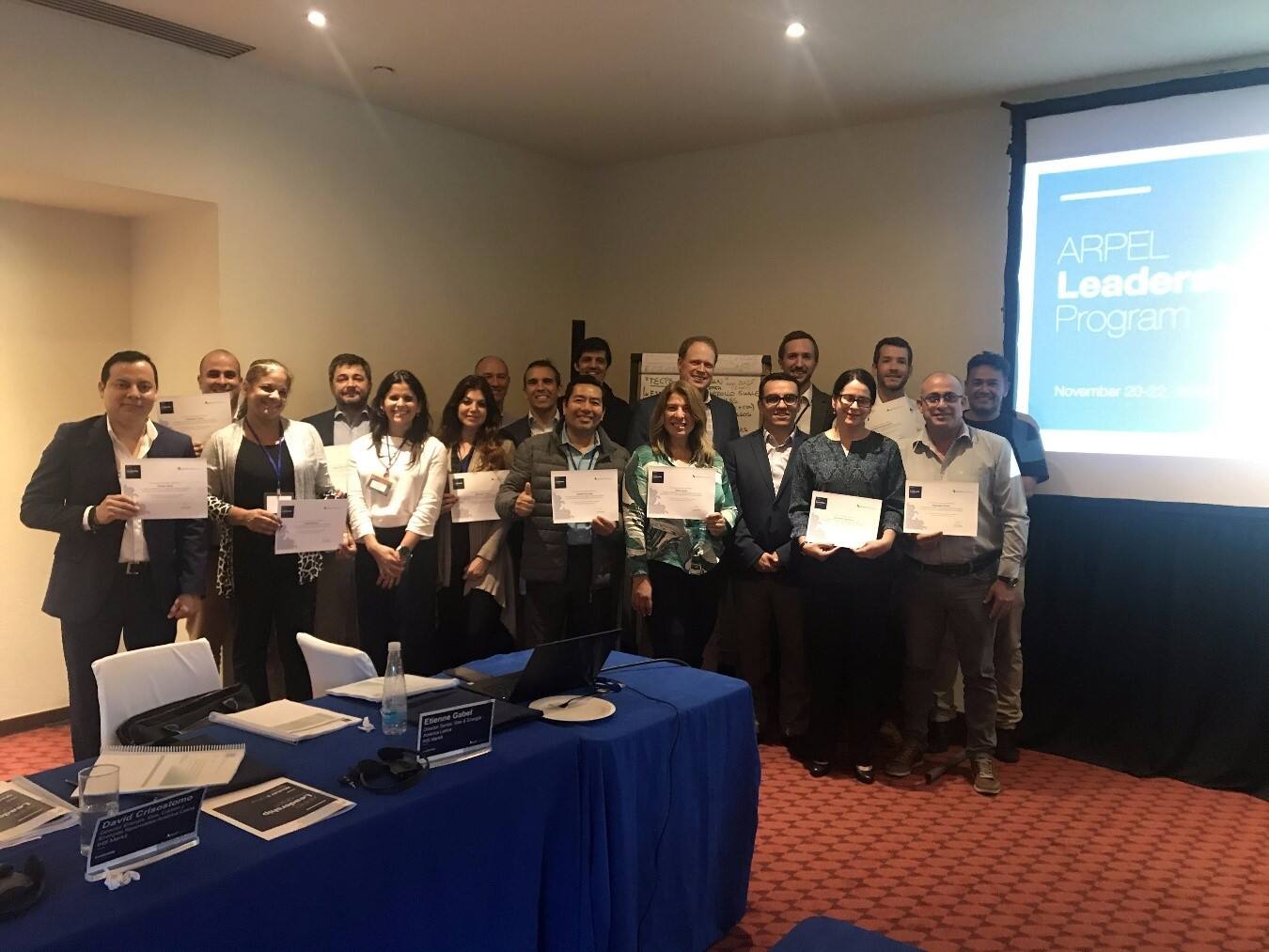IHS Markit experts present at the ARPEL Leadership Program on Gas and Renewable Energies
On 20-22 November in Monterrey, Mexico, IHS Markit team members Etienne Gabel, Tim Stephure and David Crisostomo delivered the training "Gas and renewables and their role as power fuels in an increasingly decarbonized world," part of the Leadership Program of ARPEL. The Leadership Program brings together leaders and future leaders of the ARPEL member companies and offers them an in-depth vision of the future of the global energy sector.
Participating companies included CUPET, PEMEX, Tecpetrol, Transpetro - Petrobras Transporte S. A., RECOPE S.A., Frontera Energy Corp., Schlumberger and YPF.
The two days of sessions focused on analyses of key trends and drivers related to the growing penetration of renewable energy globally and in Latin America more specifically, and the role of natural gas alongside renewables.
Solar and wind energy represent today the most rapidly evolving force in the power generation market. According to IHS Markit, in Latin America the resources could quadruple their supply of energy by 2050. Technology cost declines and policies promoting renewables, such as renewable energy targets and renewable power auctions, are leading solar and wind projects to already compete very effectively with conventional thermal alternatives (Figure 1).

Figure 1: Average bid prices for wind and solar projects in select countries of Latin America (2014-19).
How renewable and gas-fired generators will compete versus complement each other is an important question for the region's future energy mix. Power grids will be tested by the intermittency of solar and wind energies, and gas-fired units provide possible solutions (Figure 2). Similarly, battery storage represents another possible shock that could accelerate a move towards technology changes in the energy sector, and again, natural gas could act as a complement rather than a competitor, depending on the market context.
In this evolving environment, gas-fired generators are looking for new ways to reduce their risk profiles and to provide new services. Some of these new services are correlated with gas consumption, some are not. Gas suppliers—for whom power generators are their main off-taker—will need to adapt their own offerings to accommodate this reality.

Figure 2: Advantages of gas and renewable energy partnerships.
This event was the third of three leadership modules offered by ARPEL in 2019 with the collaboration of IHS Markit. The other two modules were "Global and regional energy industry trends and their impact on the Latin American upstream sector" and "Downstream sector: The new normal for refining's role in a world of changing demand."

For more information on the ARPEL Leadership Program for which IHS Markit is a partner, visit their site.
This article was published by S&P Global Commodity Insights and not by S&P Global Ratings, which is a separately managed division of S&P Global.



